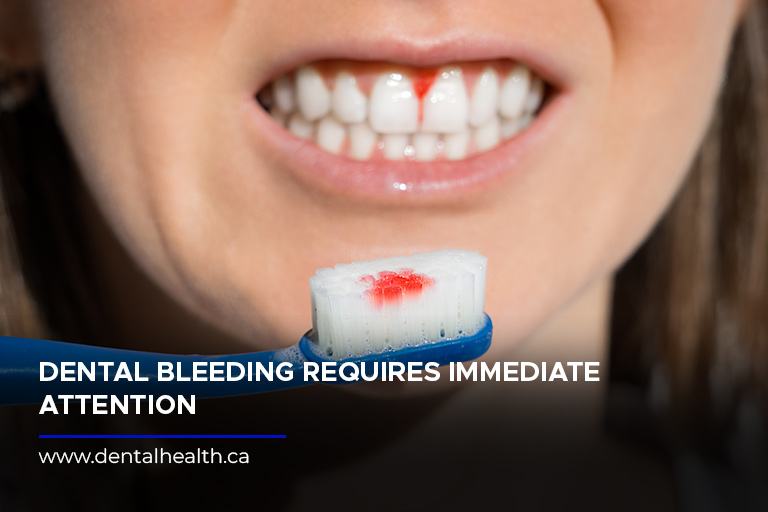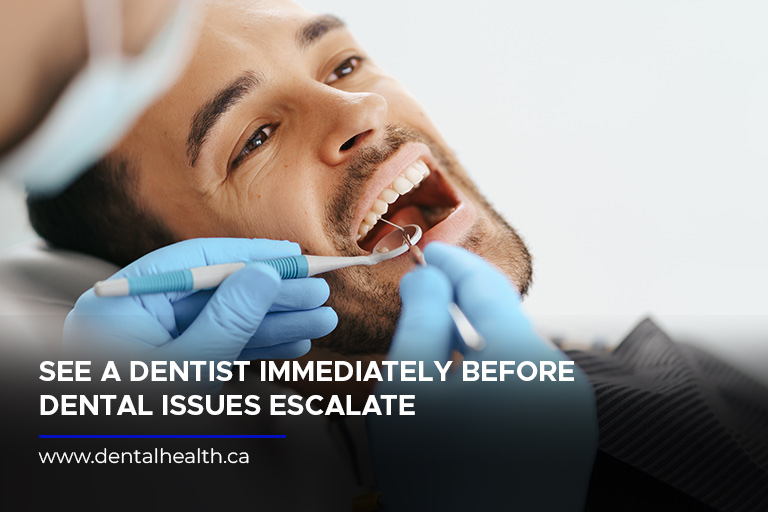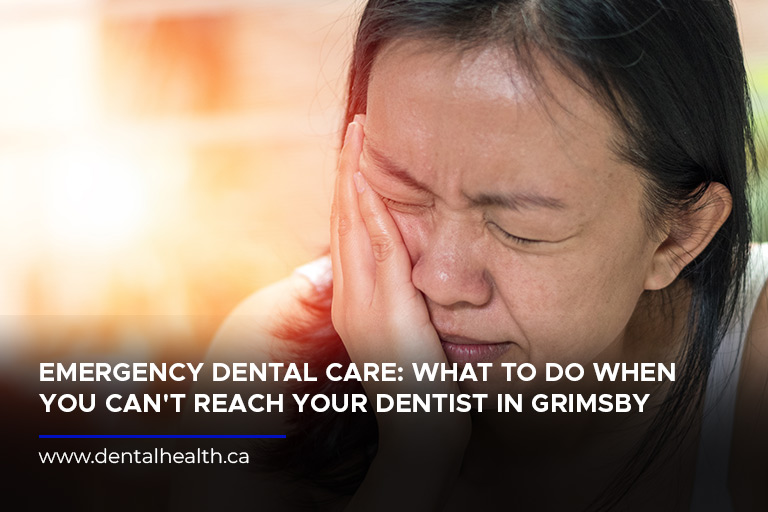Dental emergencies can strike unexpectedly, causing significant discomfort and stress. Prompt dental care is crucial to prevent further complications and alleviate pain. However, accessing dental care in Grimsby during after-hours, weekends, or holidays can be challenging. Your regular dentist might not be available, leaving you wondering what to do next.
Fortunately, there are steps you can take to manage dental emergencies even when your dentist is unreachable. Understanding the types of emergencies, recognizing warning signs, knowing immediate steps to take, and implementing preventive measures can help you navigate these situations with confidence.
Types of Dental Emergencies
Some dental issues require immediate attention to prevent serious complications. Here are common dental emergencies you might encounter:
- Toothache: Severe tooth pain can indicate an infection or decay that needs prompt attention. Over-the-counter pain relief and rinsing with warm salt water can provide temporary relief until you can see a dentist.
- Chipped or Broken Tooth: Accidents can result in chipped or broken teeth. Save any pieces of the tooth, rinse your mouth with warm water, and apply a cold compress to reduce swelling. Seek dental care as soon as possible.
- Knocked-Out Tooth: If a tooth is knocked out, keep it moist by placing it in a container with milk or saline solution. Avoid touching the root and try to reinsert it into the socket if possible. Visit a dentist immediately for the best chance of saving the tooth.
- Lost Filling or Crown: Losing a filling or crown can expose the affected tooth to damage and pain. Use dental cement or sugarless gum to temporarily cover the area and see your dentist promptly for a permanent solution.
- Abscess: An abscess is a serious infection that forms around the root of a tooth or in the space between the teeth and gums. It can cause severe pain, swelling, and fever. Rinse with salt water and seek immediate dental care to prevent the infection from spreading.
- Broken Braces and Wires: If a wire in your braces breaks or protrudes, it can cause discomfort and damage your mouth. Use a pencil eraser to push the wire into a more comfortable position and apply orthodontic wax to cover the sharp end until you can see your orthodontist.
- Soft Tissue Injuries: Injuries to the tongue, cheeks, gums, or lips can cause bleeding and pain. Rinse your mouth with a mild salt-water solution, apply pressure to stop the bleeding, and use a cold compress to reduce swelling. If the bleeding doesn’t stop, seek emergency dental care.
Warning Signs

Recognizing the warning signs of a dental emergency can help you act quickly. Here are some signs to watch out for:
- Severe Pain: Intense, persistent pain is a clear indicator that something is wrong. It could be a sign of an infection, a damaged tooth, or another serious issue that needs immediate attention.
- Swelling: Swelling in your face or gums can signal an infection or abscess. It’s important to address this promptly to prevent the infection from spreading.
- Bleeding: Uncontrolled bleeding from your gums or mouth after an injury requires immediate attention. It could indicate a serious problem that needs professional care.
- Loose Teeth: If your teeth feel loose or out of place, it could be due to an injury or underlying dental issue. Seek dental care to assess and treat the problem.
- Pus or Discharge: Pus or other discharge from your gums or teeth is a sign of infection. It’s crucial to get this treated quickly to avoid further complications.
Immediate Steps to Take
Knowing what to do immediately after a dental emergency can make a significant difference. Here are steps to take:
- Stay Calm: Panic can make the situation worse. Take deep breaths and stay as calm as possible while assessing the situation.
- Rinse Your Mouth: Use warm salt water to rinse your mouth. This helps clean the affected area and can provide some relief from pain and swelling.
- Control Bleeding: If there is bleeding, apply pressure using a clean cloth or gauze. Hold it in place until the bleeding stops.
- Manage Pain: Use over-the-counter pain relievers like ibuprofen to manage pain. Avoid aspirin, as it can increase bleeding.
- Apply Cold Compress: A cold compress can help reduce swelling and numb the area to alleviate pain. Apply it to the outside of your mouth or cheek for 10-20 minutes.
- Protect the Area: If you have a broken tooth or lost filling, cover the area with dental cement or sugarless gum to protect it until you can see a dentist.
- Contact Emergency Services: If the situation is severe and you can’t reach a dentist, consider visiting an emergency room or contacting local emergency dental services for immediate assistance.
Preventing Dental Emergencies

Prevention is always better than cure. Here are ways to reduce the risk of dental emergencies:
- Regular Dental Check-ups: Visit your dentist regularly for check-ups and cleanings to catch potential problems early and maintain good oral health.
- Use Protective Gear: If you play sports or engage in activities with a risk of injury, wear a mouthguard to protect your teeth.
- Avoid Hard Foods: Stay away from chewing ice, hard candies, and other hard foods that can crack or break your teeth.
- Practice Good Oral Hygiene: Brush and floss daily to prevent decay and gum disease. Good oral hygiene is essential for maintaining strong, healthy teeth.
- Address Problems Early: Don’t ignore dental issues. Seek treatment for minor problems before they escalate into emergencies.
- Be Mindful of Bad Habits: Avoid using your teeth as tools to open packages or bite down on non-food items. These habits can cause damage over time.
- Stay Informed: Educate yourself about dental health and know what steps to take in case of an emergency. Being prepared can help you handle unexpected situations effectively.
Dental emergencies can be distressing, especially when your regular dentist in Grimsby is unavailable. However, by understanding the types of emergencies, recognizing warning signs, knowing immediate steps to take, and practising preventive measures, you can manage these situations more effectively. Remember, taking quick action can make a significant difference in preserving your dental health and reducing pain.
For immediate dental assistance, contact Kingsway Family Dentistry at (905) 563-4001. We’re here to help you with your dental needs, even during emergencies.

